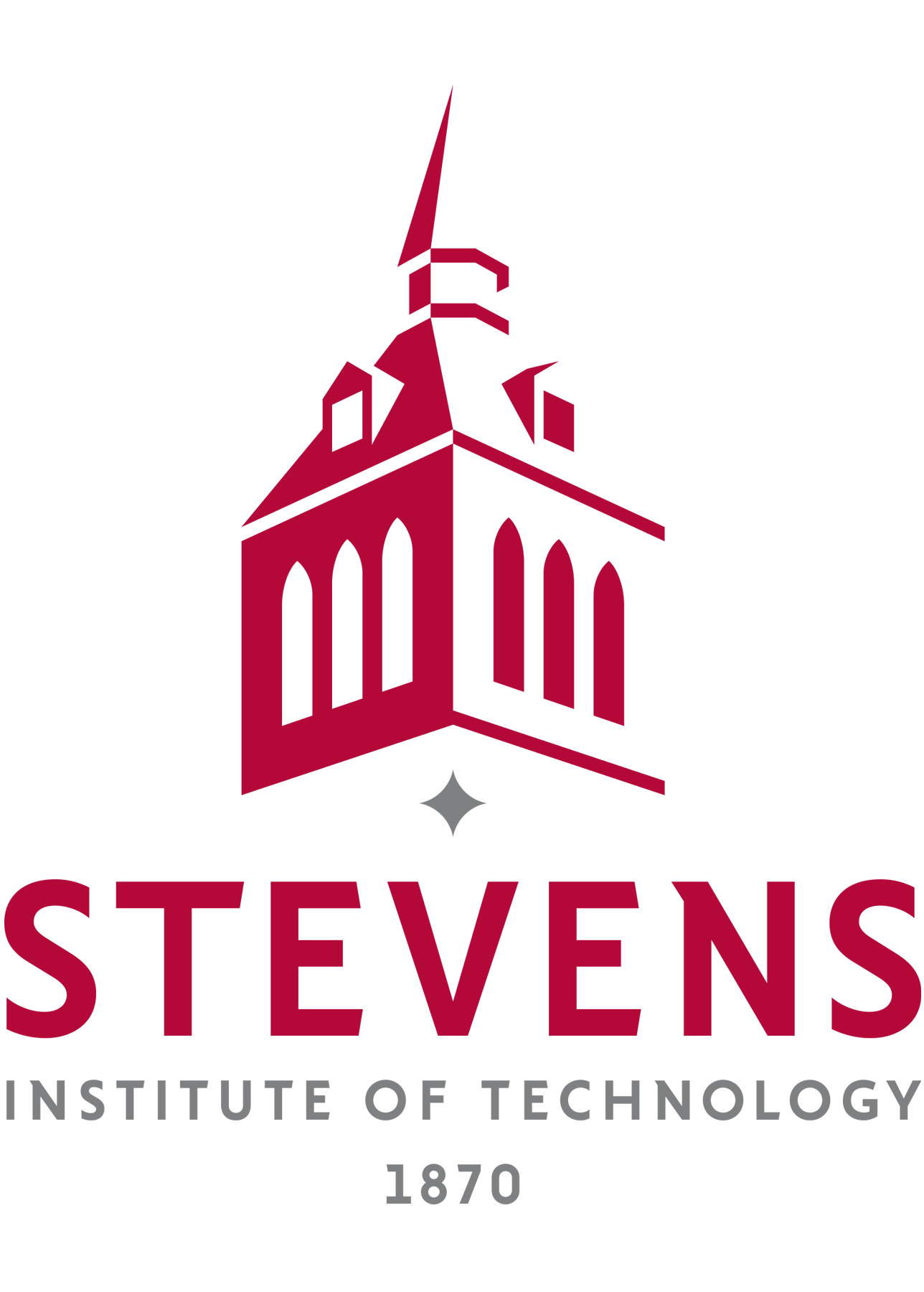An online master’s in electrical engineering prepares students for a range of careers in the engineering field. While you do not need a graduate degree to enter the workforce, it can elevate your career opportunities, especially for leadership and supervisory positions. Most online graduate degrees in electrical engineering require 30 to 33 credit hours; in some cases, a full-time attendee could finish in just one year.
According to the National Center for Education Statistics, the average tuition for a graduate degree is $20,513 per year. Upon finishing their program, graduates would be eligible to apply for senior-level or managerial positions in electrical engineering and can expect an average annual salary of over $100,000.
We consulted Blanca Villagomez, a program counselor and coordinator at UC-Irvine, for her expert advice on selecting the best master’s in electrical engineering program and securing funding for your online degree.
Why Trust Us
The Intelligent.com Higher Education Team is dedicated to providing students with independent, equitable school and program rankings and well-researched resources. Our expert-driven articles cover topics related to online colleges and programs, paying for school, and career outlooks. We use data from the U.S. Department of Education’s College Scorecard, the National Center for Education Statistics, and other reputable educational and professional organizations. Our academic advisory team reviews content and verifies accuracy throughout the year for the most current information. Partnerships do not influence rankings or editorial decisions.
- Analyzed over 2,000 national, accredited, and nonprofit colleges and universities
- 800+ rankings pages are reviewed and updated yearly
- Content is informed by reputable sources, surveys, and interviews with academic advisors and other experts
- Over 100 data points are reviewed for accuracy and quality throughout the year, including sources
How we rank schools
Our list features the best online Electrical Engineering degree programs at top colleges nationwide. Each school featured is a nonprofit, accredited institution — either public or private — with a high standard of academic quality for post-secondary institutions.
We evaluated each school’s program on tuition costs, admission, retention and graduation rates, faculty, reputation, and the student resources provided for online students. We collected data from trusted sources like the National Center for Education Statistics, individual school and program websites, school admissions counselors, and other data sources. Then, we calculated the Intelligent Score on a scale of 0 to 100 based on the following criterion:
Academic Quality:
- Admission rate versus enrollment rate
- Retention rate of students who return after year one
- Accreditation status (regional and programmatic)
- Nonprofit status, both private and public institutions
Graduation Rate
- Overall graduation rate
- Total number of currently enrolled students, including diversity metrics
- Student-to-faculty ratio
Cost and ROI
- In-state and out-of-state per-credit tuition rates and fees
- Required credits to graduate
- Earning potential after graduation
- Availability of federal student loans, scholarships, and other financial aid options
Student Resources
- Available student services for online-only and hybrid programs
- On-campus amenities like tutoring centers and the number of libraries
Read more about our ranking methodology.
Best 28 Accredited Online Master’s in Electrical Engineering Degree Programs
FiltersInstitution Type
Status
- Intelligent Score
- Alphabetically By University Name
- Acceptance Rate
- Enrollment
- In-state Graduate Tuition
- Out-of-state Graduate Tuition
- In-state Undergraduate Tuition
- Out-of-state Undergraduate Tuition

North Carolina State University
Intelligent Score: 98.33In-state: $6,535
Out-of-state: $26,654
In-state: $9,095
Out-of-state: $9,095
SAT: 1230-1410
ACT: 27-32
In-State: $525
Out-of-State: $1,635
Online
Southern Association of Colleges and Schools Commission on Colleges
31

Arizona State University
Intelligent Score: 96.80In-state: $10,710
Out-of-state: $28,800
In-state: $11,720
Out-of-state: $11,720
SAT: 1100-1320
ACT: 21-28
$576
Online
Higher Learning Commission
30

Stanford University
Intelligent Score: 94.43In-state: $55,473
Out-of-state: $55,473
In-state: $54,315
Out-of-state: $54,315
SAT: 1420-1570
ACT: 31-35
$1,456
Online
Western Association of Schools and Colleges Senior College and University Commission
45

Columbia University
Intelligent Score: 94.05In-state: $57,864
Out-of-state: $57,864
In-state: $49,024
Out-of-state: $49,024
SAT: 1460-1570
ACT: 33-35
$2,462
Online
Middle States Commission on Higher Education
30

University of California, Los Angeles
Intelligent Score: 93.66In-state: $11,442
Out-of-state: $41,196
In-state: $11,442
Out-of-state: $11,442
SAT: 1310-1530
ACT: 30-35
In-State: $755
Out-of-State: $1,384
Online
Western Association of Schools and Colleges Senior College and University Commission
36

University of Colorado Boulder
Intelligent Score: 92.51In-state: $33,466
Out-of-state: $60,716
In-state: $59,883
Out-of-state: $59,883
SAT: 1160-1390
ACT: 26-32
$667
Online
Higher Learning Commission
30

Texas A&M University College of Engineering
Intelligent Score: 91.75In-state: $8,395
Out-of-state: $36,849
In-state: $6,775
Out-of-state: $6,775
SAT: 1160-1380
ACT: 26-32
In-State: $717
Out-of-State: $1,259
Online
Southern Association of Colleges and Schools Commission on Colleges
32

PennState World Campus
Intelligent Score: 91.59In-state: $15,025
Out-of-state: $24,413
In-state: $22,464
Out-of-state: $22,464
SAT: 1070-1300
ACT: 24-29
$1,027
Online
Middle States Commission on Higher Education
30

New Mexico State University
Intelligent Score: 90.78In-state: $6,041
Out-of-state: $22,507
In-state: $4,981
Out-of-state: $4,981
SAT: 950-1150
ACT: 17-23
$444
Online
Higher Learning Commission
30

University of North Dakota
Intelligent Score: 90.64In-state: $8,540
Out-of-state: $12,810
In-state: $11,060
Out-of-state: $11,060
SAT: 1000-1230
ACT: 20-27
$798
Online, On-Campus
Higher Learning Commission
30

University of Idaho
Intelligent Score: 89.37In-state: $6,182
Out-of-state: $25,418
In-state: $7,754
Out-of-state: $7,754
SAT: 990-1220
ACT: 20-26
In-State: $601
Out-of-State: $1,670
Online, On-Campus
Northwest Commission on Colleges and Universities
30

Villanova University
Intelligent Score: 89.06In-state: $56,730
Out-of-state: $56,730
In-state: $20,619
Out-of-state: $20,619
SAT: 1320-1460
ACT: 30-33
$1,595
Online, On-Campus
Middle States Commission on Higher Education
30

Stevens Institute of Technology
Intelligent Score: 88.56In-state: $53,828
Out-of-state: $53,828
In-state: $37,414
Out-of-state: $37,414
SAT: 1320-1480
ACT: 31-34
$1,930
Online, On-Campus
Middle States Commission on Higher Education
30

Iowa State University
Intelligent Score: 88.55In-state: $8,042
Out-of-state: $23,230
In-state: $9,758
Out-of-state: $9,758
SAT: 1010-1310
ACT: 21-28
In-State: $611
Out-of-State: $1,548
Online
Higher Learning Commission
30

Missouri University of Science and Technology
Intelligent Score: 86.89In-state: $9,330
Out-of-state: $28,563
In-state: $10,452
Out-of-state: $10,452
SAT: 1238-1390
ACT: 26-31
$950
Online
Higher Learning Commission
30

University of Michigan - Dearborn
Intelligent Score: 86.19In-state: $16,520
Out-of-state: $53,669
In-state: $24,344
Out-of-state: $24,344
SAT: 1340-1520
ACT: 31-34
$1,136
Online
Higher Learning Commission
30

Oklahoma State University
Intelligent Score: 85.92In-state: $5,357
Out-of-state: $20,877
In-state: $5,531
Out-of-state: $5,531
SAT: 1020-1250
ACT: 21-28
In-State: $489
Out-of-State: $530
Online
Higher Learning Commission
30

Colorado State University
Intelligent Score: 85.80In-state: $9,426
Out-of-state: $28,147
In-state: $10,520
Out-of-state: $10,520
SAT: 1070-1280
ACT: 23-29
$705
Online
Higher Learning Commission
30
How to Choose an Online Master’s in Electrical Engineering Program
Choose your area of study
Your first decision when pursuing an online master’s in electrical engineering will be whether to obtain a Master of Science or a Master of Engineering. The requirements for these programs are typically the same, but they prioritize different overall goals.
A Master of Science in engineering tends to skew more toward research and theory, so those seeking Ph.D. programs and possible teaching positions will likely choose this option. Applicants pursuing a more practical application of engineering principles might opt for a Master of Engineering. Some institutions also offer dual-degree programs, such as an engineering degree combined with an MBA — though these programs demand a longer academic commitment.
Your next consideration is your concentration. Institutions offer different focus areas, and not all universities provide the same concentrations. Some common options include:
- Wireless and mobile communications
- Circuits and systems
- Computer engineering
- Robotics
- Bioengineering
If you already know what you would like to do after you graduate, look for programs that match these career goals.
“Develop a list of personalized parameters to help you narrow down graduate program options. Examples include overall cost, access to financial aid, faculty expertise, duration of the program, and employment rates post-graduation,” Villagomez says. “As you’re gathering information, consider which programs align with your needs and priorities at this stage in your life.”
Research schools and programs
You should only apply to institutions that have been approved by a DOE-recognized regional accrediting organization, such as the New England Commission of Higher Education or Northwest Commission on Colleges and Universities. These organizations evaluate schools to ensure they provide students with a high-quality education. Those who attend a school that isn’t regionally accredited may be unable to access financial aid or transfer credits to another institution if needed.
You should also look for programmatic accreditation from the Accreditation Board for Engineering and Technology (ABET), as this is essential for professional engineering licensure.
Some other questions to consider include:
- Do online students have access to support resources like tutoring, counseling, and career coaching?
- How is professional experience integrated into the program?
- What accommodations are available to those with disabilities?
It’s important to ensure your degree meets your personal and professional needs.
Villagomez recommends gathering the following information when researching schools and programs:
- Application and eligibility requirements
- Available courses
- Cost of attendance and financial aid resources
- Housing options (on and off-campus)
- Institution’s reputation and ranking
- Campus life and available co-curricular activities
- Available professional development resources
- Available general and niche support services
Prepare for tests and applications
Application requirements vary by school and program. Some may have rolling admissions, whereas others have a firm date by which you must submit your materials. Most programs set thresholds for a minimum undergraduate GPA and GRE/GMAT scores. If you struggle with standardized testing, consider enrolling in a GRE or GMAT prep course or setting aside additional preparation time. However, only some schools require admissions testing, so plan and do your research.
You may also need to submit undergraduate transcripts, letters of recommendation, and a personal statement. Before submitting an application, always contact an admissions counselor to ensure you have the most accurate information regarding requirements and deadlines.
Select your program
Once you’ve identified the programs that match your goals, it’s time to compile your application materials and submit them. You might apply for just one program or want to give yourself options. Most schools post their acceptance rate so that you can get a sense of a specific program’s competitiveness. When you receive your acceptance notices, you’ll want to compare the pros and cons of each choice, factoring in cost, professional opportunities, schedule flexibility, and other variables that matter to you.
Before making your final decision, review your needs and goals again. Do you plan to attend school full-time or part-time? Are you only interested in 100% online programs, or are you fine with a hybrid program that has a few in-person requirements? Some programs offer asynchronous courses, which can be completed at your own pace, while others only offer synchronous courses, which involve remotely attending lectures and completing assignments at the same time as other students — which of these two online learning formats do you prefer? Your school should accommodate your scheduling needs and learning preferences.
Determine how you’ll pay for your degree
Generally, you can find the per-credit cost for your program online. Some programs offer scholarships, fellowships, or other funding opportunities, but these are less common at the graduate level and can be very competitive. To help you plan for payment, contact the school’s financial aid office. You may qualify for federal assistance or affordable loans by completing the Free Application for Federal Student Aid (FAFSA). “Be sure to complete and submit this application and any others, such as your state’s Dream Act application, well ahead of deadlines to ensure your information is reviewed promptly,” says Villagomez. “Depending on your income and other financial factors, you may receive a generous financial aid package or have to rely more on loans and out-of-pocket contributions.”
What Can You Do With an Online Master’s in Electrical Engineering?
Career outlook
A master’s in electrical engineering degree prepares students for a career in any industry that uses electrical components or electronic products.
Those who wish to focus strictly on electrical engineering can work with utility companies and power systems businesses. Those who want to use their knowledge for broader applications can work in the aerospace or marine industries. Electrical engineers are also necessary for healthcare operations and transportation. Here are a few common electrical engineering career paths:
- Electrical or electronics engineer — Design, develop, and test electrical and electronic equipment, such as electric motors, navigation systems, communication systems, and smartphones.
- Median annual salary: $104,610
- Projected employment growth (through 2032): 5%
- New job openings projected: 17,800 annually
- Aerospace engineer — Develop and test the componants used in aircraft, spacecraft, satellites, and missiles.
- Median annual salary: $126,880
- Projected employment growth (through 2032): 6%
- New job openings projected: 3,800 annually
- Environmental engineer — Develop and test technology for dealing with environmental issues, such as pollution and global warming.
- Median annual salary: $96,530
- Projected employment growth (through 2032): 6%
- New job openings projected: 3,400 annually
Online Master’s in Electrical Engineering Degree Frequently Asked Questions
How do I apply to an online master’s in electrical engineering degree program?
Some of the more common application materials for an online master’s in electrical engineering degree program include:
- Personal statement
- Undergraduate transcripts
- Resume
- Letters of recommendation
- Test scores (GRE scores are preferred over GMAT scores for most electrical engineering programs)
You can also ask an admissions counselor if there is any way to waive the application fees.
Official test scores can take several weeks to send, transcripts can take a few days to mail, and your professional references need at least two weeks to craft their recommendation letters.
How much does an online master’s in electrical engineering degree cost?
The total tuition for an online master’s in electrical engineering degree is typically between $15,000 to $49,000. Multiple factors tie into the final cost. For instance, private schools tend to be more expensive than public schools, and public schools usually charge a higher price for out-of-state students. Other associated costs include books, software, and technology, library, and student fees.
To save some money, ask your admissions counselor about relevant transfer credits, as some programs have curricular requirements that you have already completed in undergrad.
How long does it take to earn an online master’s in electrical engineering degree?
Most online master’s in electrical engineering degrees require between 30 to 33 credits, or roughly ten classes. If you attend full-time, you can finish in one or two years. However, many engineering professionals choose to earn their master’s degree while continuing to work, requiring part-time attendance.
If you decide to attend part-time, you will likely need three to five years to complete the program. It’s important to note that many programs require you to finish the coursework within five years. Students can sometimes complete online degree programs, especially those with a self-paced, asynchronous model, at a faster rate than traditional in-person degrees.
Is an online master's in electrical engineering degree worth it?
A master’s degree in electrical engineering opens up advanced positions with supervisory responsibilities and higher salaries. According to the Bureau of Labor Statistics (BLS), the highest-paying industry for electrical engineers is research and development in the physical, engineering, and life sciences. Manufacturing of semiconductors and other electronic components is a close second.
Completing your master’s degree opens up valuable research, internship, and networking opportunities. You can assist faculty with projects and gain valuable experience that can make you a more attractive candidate when it’s time to join the workforce. An online master’s degree program can be especially valuable for students already in the field who are trying to further their education because it’s easier to complete coursework around a traditional job.


